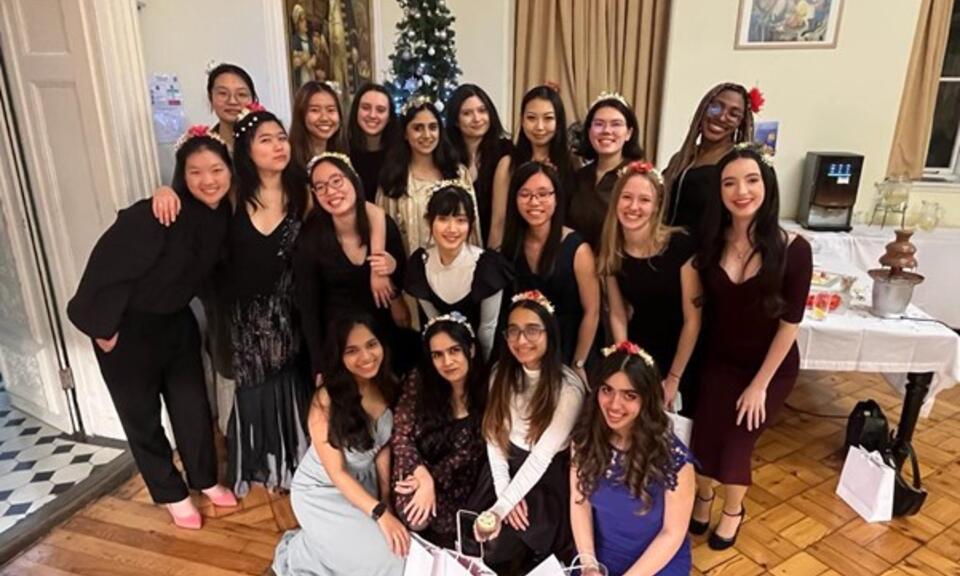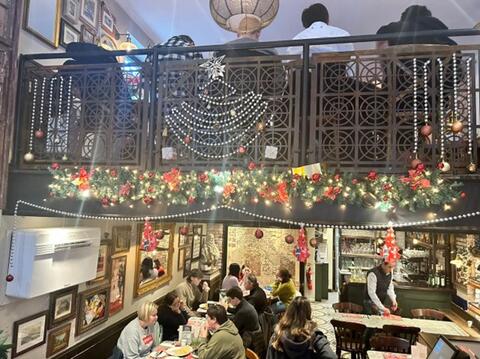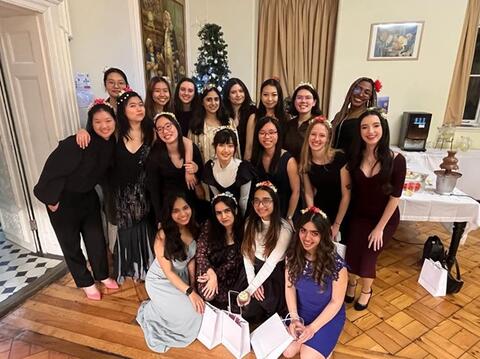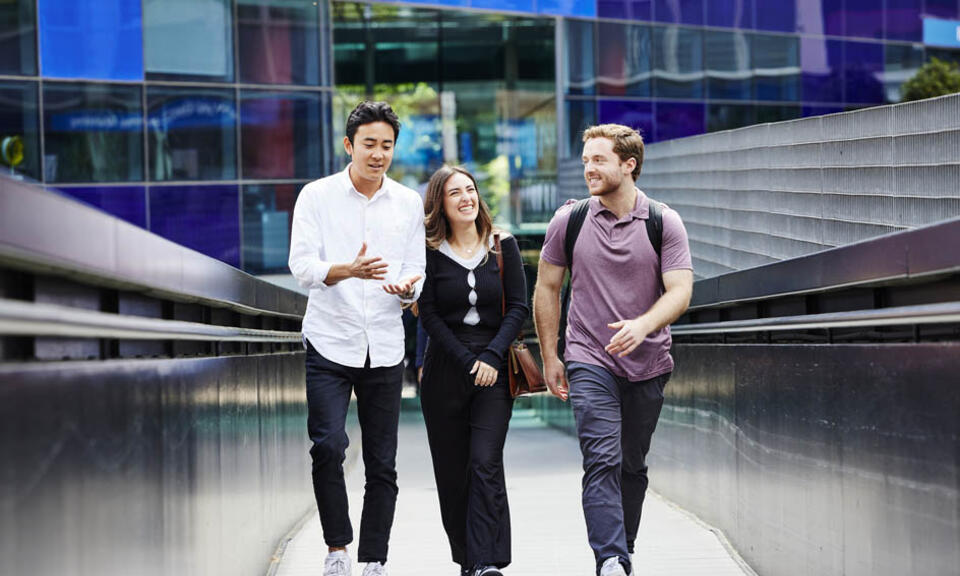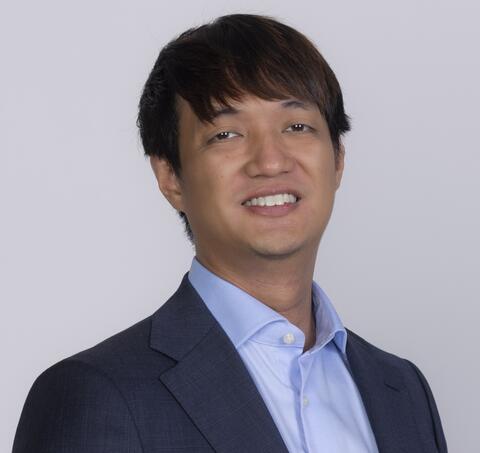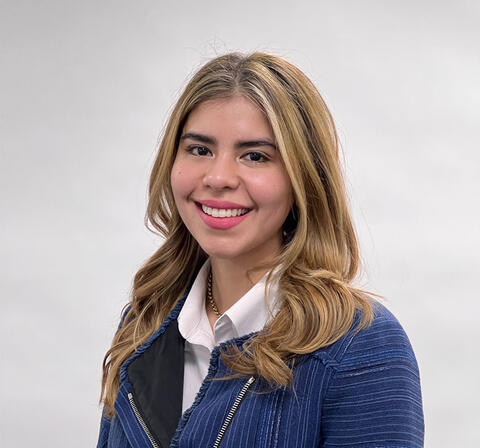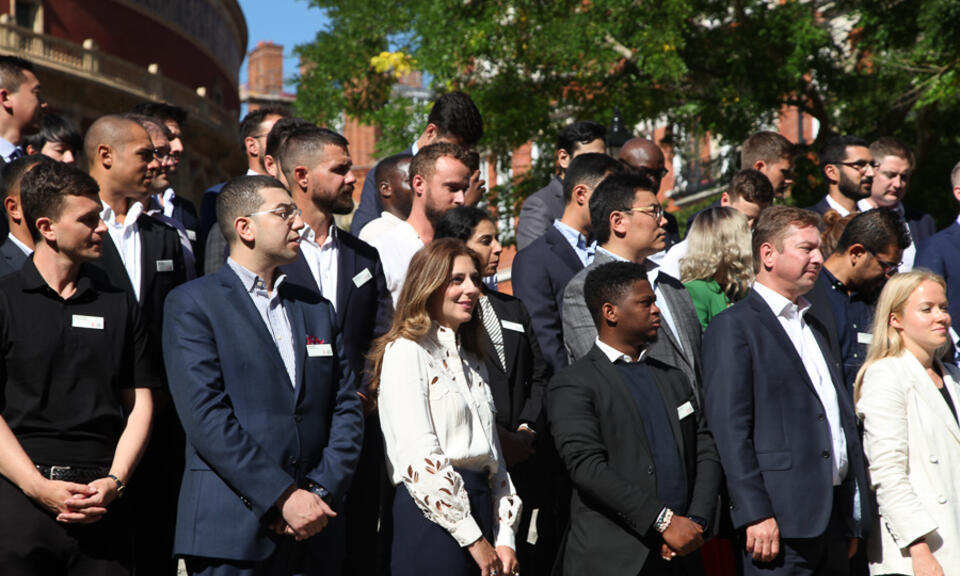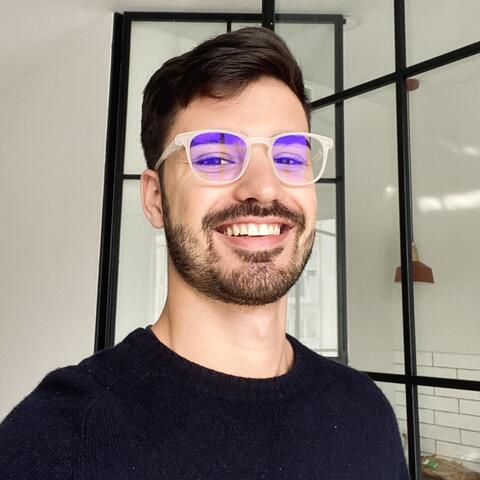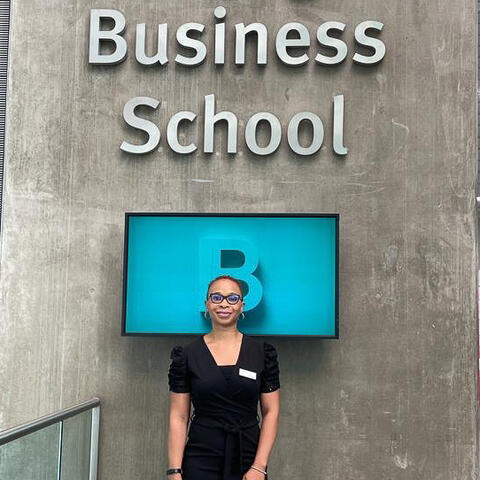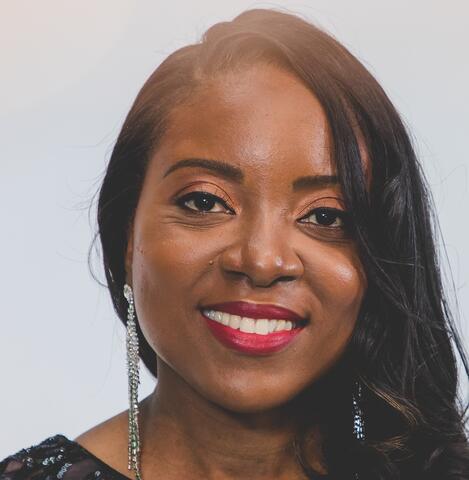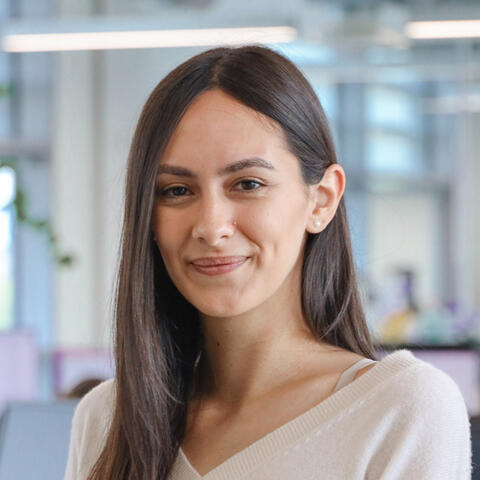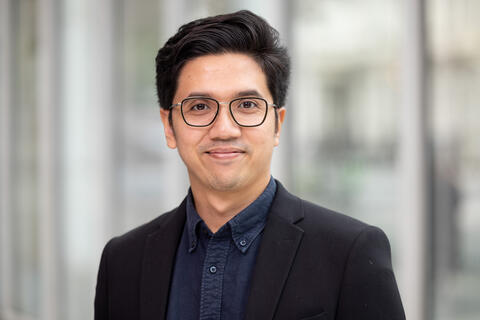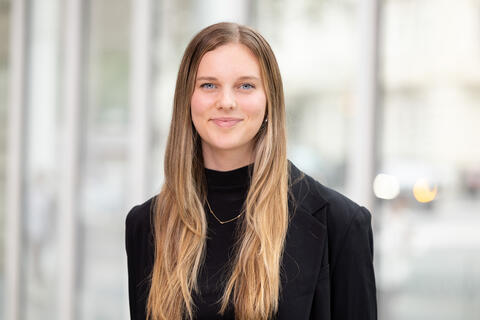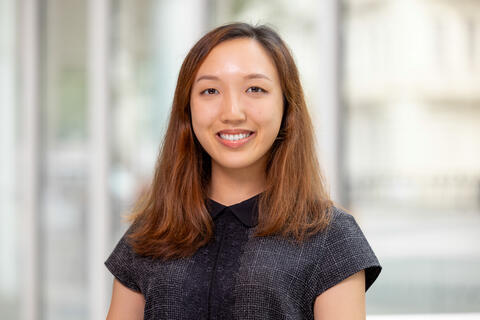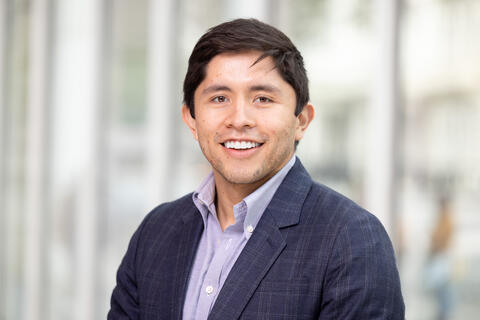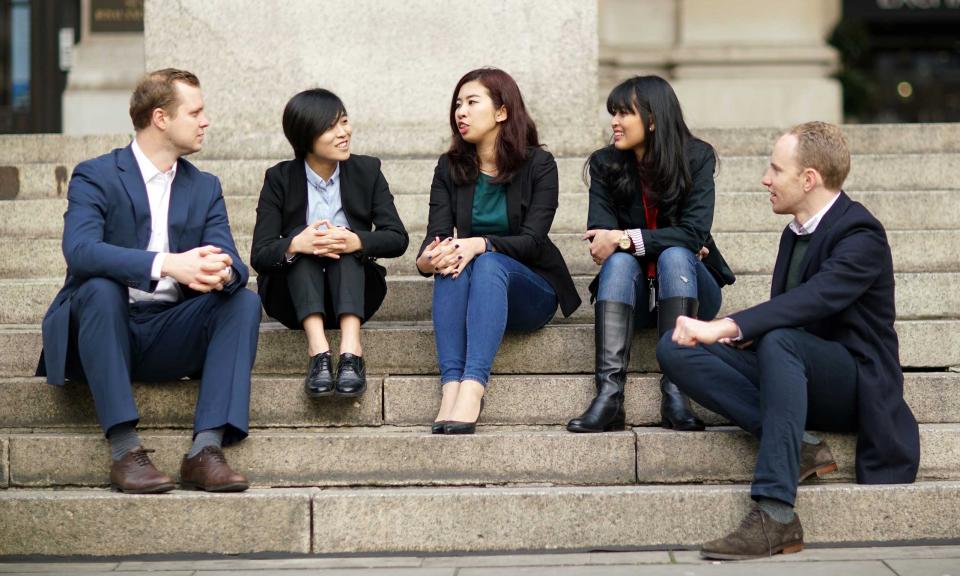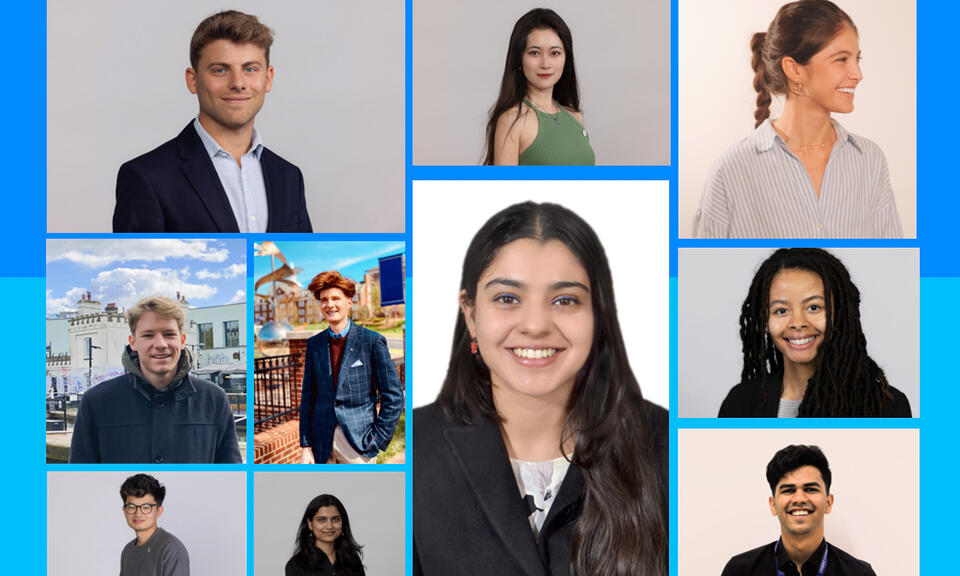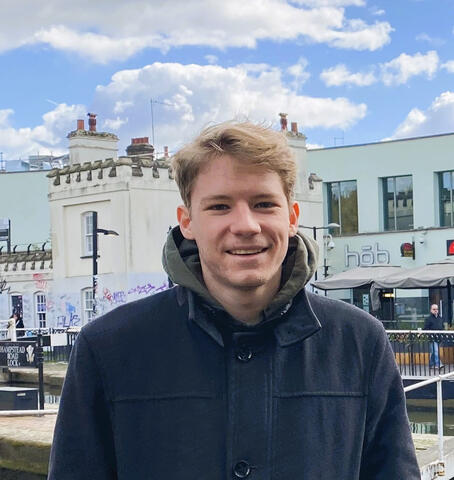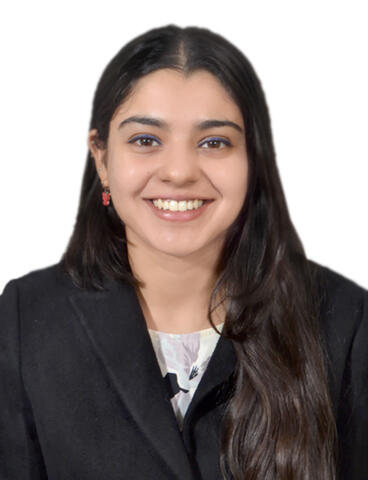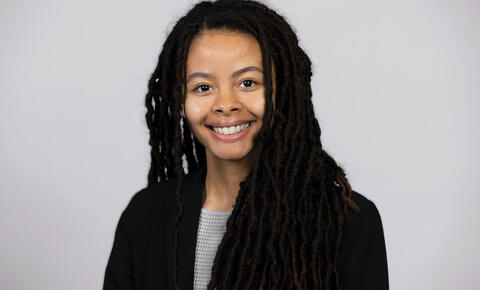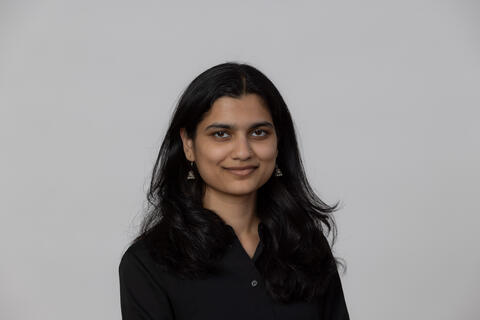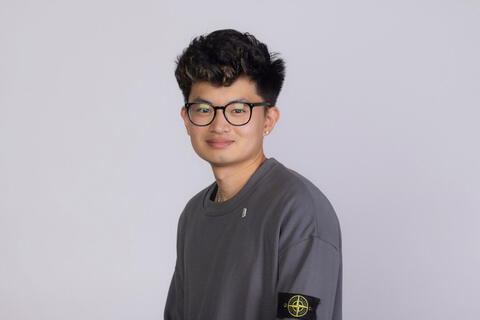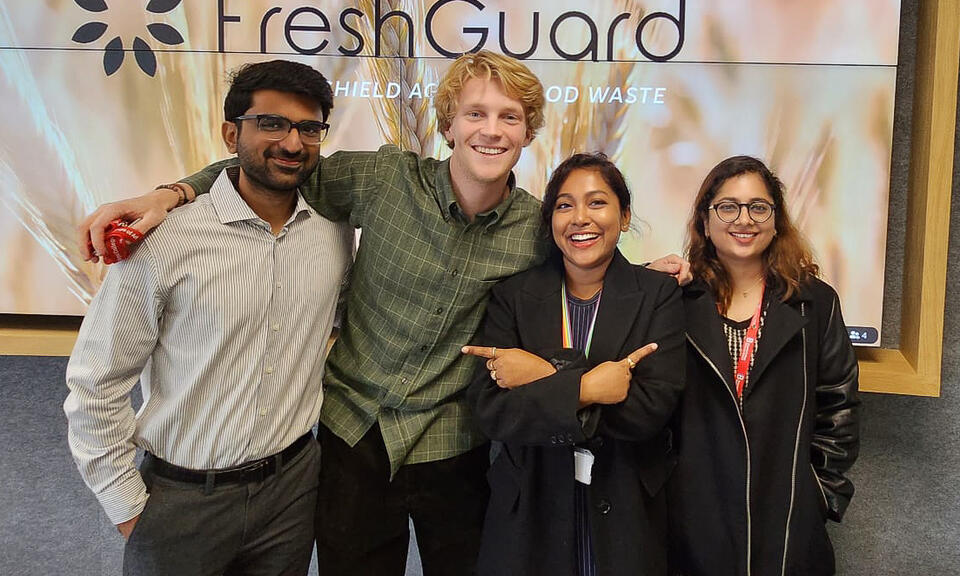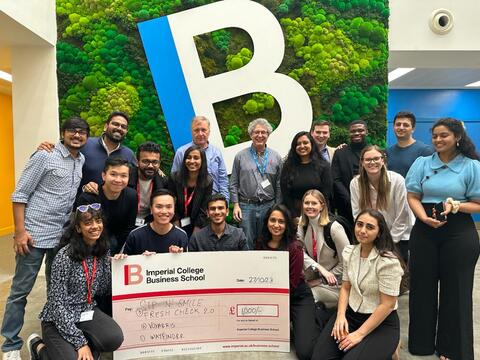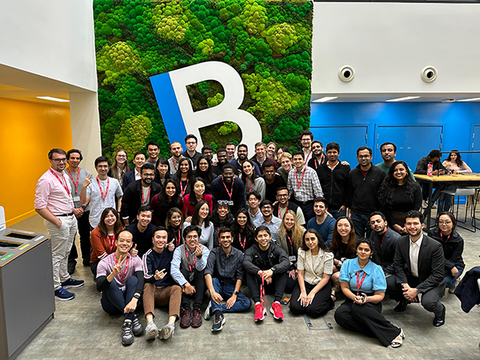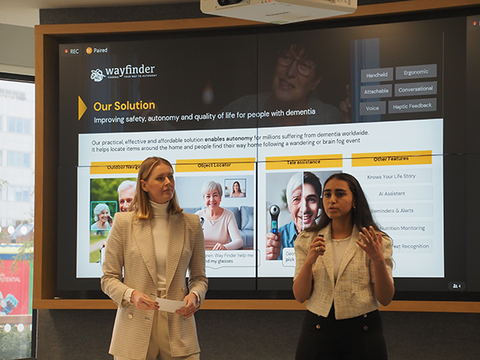Meet the Finance Masters' class of 2023-24
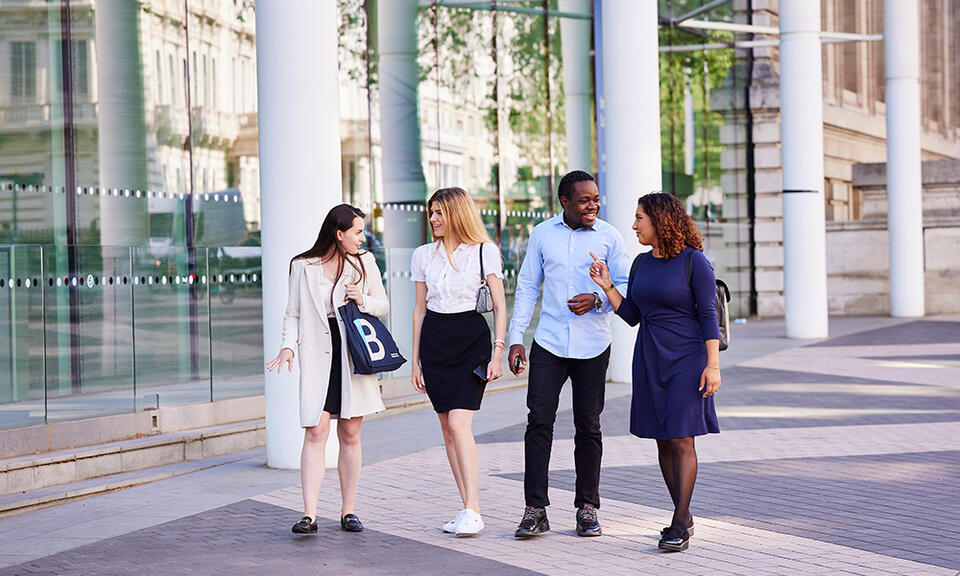
In September, we welcomed another great cohort of Finance Master’s students as they begin their one-year journey on the following programmes:
- MSc Finance
- MSc Finance & Accounting
- MSc Financial Technology
- MSc Investment & Wealth Management
- MSc Risk Management & Financial Engineering
620 students have joined Imperial Business School across these 5 programmes, with 44% of students being female and the average age being 22. The cohort comprises 77 nationalities, giving students a diverse and enriching learning environment. These students come with diverse career and educational backgrounds, with many originating from fields such as Mathematics, Finance/Accounting, Economics, and Science/Medicine.

Our students can look forward to learning through a combination of the latest research, practical application, and studying a wide variety of topics at Imperial Business School. Furthermore, each student can choose their own set of core modules and programme electives, enabling them to tailor and personalise their programme.
The Business School has developed strong connections with leading companies in the City of London and beyond, providing opportunities for our students to build their skills and confidence in the real world. Each student will gain new, unique skills that will help secure them a successful role in corporate finance, fintech, investment banking, wealth management or any other area of finance they may choose.
We look forward to seeing all our student’s achievements this coming year.
MSc Finance
Ranked #15 in the world in the Financial Times Master’s in Finance Ranking 2023, MSc Finance has a proven track record of securing students competitive jobs in the finance industry in sectors such as investment banking, asset management and consultancy. The programme also helps our MSc Finance students to obtain their Chartered Financial Analyst designation, as a member of the CFA University Affiliation Program.
Our 2023-24 cohort is made up of 86 students, 28% of these being female and an average class age of 23. 38 nationalities are represented in our class, exposing our students to new cultures, and providing them with an opportunity for innovative global thinking. Our students join us from varying backgrounds including Economics (41%), Business/Management (18%), Finance/Accounting (17%), Engineering/Technology (13%), as well as Mathematics (9%).
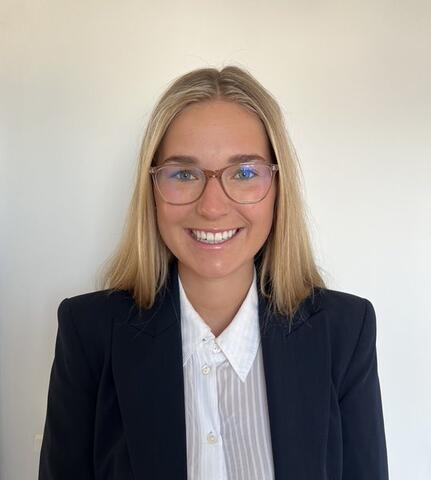
Emma Ford
Education: University of Cape Town - Bachelor of Science, Mechanical and Mechatronic Engineering
Nationality: South African
What hobbies or interests do you have outside of your academic life? Have you joined any clubs and/or societies?
I am a part of the Women Mean Business and Finance Clubs which have been great for networking and learning new skills. I am also my cohort’s SSC careers leader which has been a great way to build on my prior leadership skills and make a difference for my class as careers have been one of our most time-consuming tasks during our first few months. The careers team is also great to work with and very helpful in implementing any plans we have for workshops, networking or skills building.
What networking opportunities have you had since starting MSc Finance?
I've been fortunate to attend nearly weekly networking events throughout the term. These have included office visits to prominent firms like Rothschild, UBS, Evercore, Nomura, MUFG, Verdier & Co, and Nordic Capital. Additionally, I participated in engaging campus talks featuring professionals from CarlSquare, FT Partners, UBS, Barclays, Standard Chartered, and Partners Group. The chance to connect and network with accomplished alumni during these events has been fantastic. We also had two impressive career fairs, with one leading to an interview with an international bank. The networking opportunities at Imperial have been exceptional, and I eagerly anticipate more in the upcoming semesters.
MSc Investment & Wealth Management
MSc Investment & Wealth Management is a one-year programme, made up of the latest industry theory findings, alongside the opportunity to find innovative solutions to real-world investment challenges.
The London location and Imperial’s connections with leading, global finance sector employers means that the programme is well placed to propel students into successful careers in investment, private equity, and asset management.
This year, we are joined by 91 students, 47% being female with an average class age of 22. Our class represents 29 nationalities, giving students the opportunity to create global business connections, Calibri Bold contribute different ideas and solutions in the classroom and thereby learn from one another. 38% of the class come from a Finance/Accounting background, 32% from Economics, and 8% from Engineering/Technology.
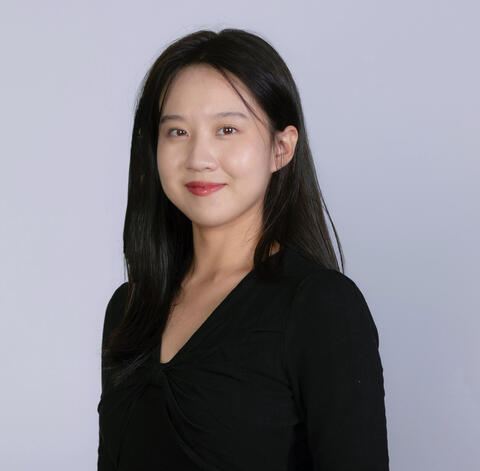
Haixin Bai
Education: The Chinese University of Hong Kong, Shenzhen - Finance
Nationality: Chinese
Why did you choose to study MSc Investment & Wealth Management at Imperial Business School?
Attracted by its unique programme name, I was surprised to discover that the one-year Master’s in Investment & Wealth Management provides everything necessary to progress in the field of investment. The programme seamlessly integrates cutting-edge research and practical problem-solving, accelerating our capabilities in portfolio construction, understanding the macro environment, managing risks, and beyond. Moreover, the Business School's prestigious reputation and recognition by industry leaders offer us a gateway to numerous exciting opportunities.
How was your first week on-campus?
The induction experience and my first week on campus were amazing. Meeting the programme team, professors, and fellow students laid the groundwork for a fulfilling academic journey. A vast array of resources could be explored with guidance, including the library and career support services. The diversity and friendliness of the student cohort have created a truly welcoming environment.
MSc Risk Management & Financial Engineering
MSc Risk Management & Financial Engineering prepares our future graduates for careers in financial engineering and risk management. Our programme is credited by the Professional Risk Manager’s International Association (PRMIA), and it is a highly quantitative programme for technically minded students. Our students have joined us, eager to engage in the deep, analytical study of risk management and financial engineering.
With a cohort size of 171 and 35 nationalities represented, this is a diverse class. 50% of the class are female and the average class age is 22. Our students join us from a variety of backgrounds including Mathematics (51%), Economics (16%) and Engineering/Technology (15%).
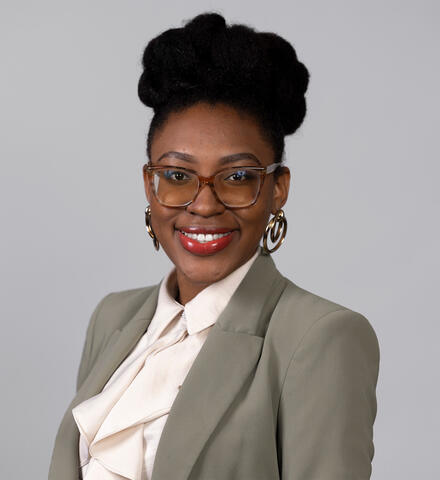
Julie-Ann Charles
Education: University of the West Indies Cave Hill Campus, BSc Economics and Accounting
Nationality: Dominican
Why did you choose to study MSc Risk Management and Financial Engineering at Imperial Business School?
My experience working with small to medium enterprises over the past two years provided me with a heightened appreciation for the efforts and ingenuity of entrepreneurs. Their commitment to innovative ideas, technologies, and solutions remains a pivotal factor in propelling economic development and sustainable growth. However, I observed that many encountered persistent challenges in accessing capital and diversifying risks. This inspired me to deepen my understanding of investment and corporate transformation strategies, ultimately influencing my choice to study MSc Risk Management and Financial Engineering at Imperial Business School.
How does the curriculum of MSc Risk Management & Financial Engineering align with your career goals?
Modules like Financial Engineering and Investments and Portfolio Management directly cater to my goal of understanding and developing sophisticated financial strategies. Many entrepreneurs, particularly in the Caribbean, are risk averse due to limited resources, geographic disadvantages, and vulnerability to external shocks. If I can compensate for this lack of knowledge and encourage market speculation, this could enhance diversification of their income streams, potentially reducing dependence on their business's core operations and promoting sustainable growth. Overall, I am certain that the programme’s comprehensive and multifaceted approach will enable me to stand out in the risk profession.
MSc Finance & Accounting
MSc Finance & Accounting is accredited by both ACCA and CIMA, it aims to prepare students for careers in financial or professional services.
Our programme touches on some of the world’s best research in corporate finance; it is a highly pragmatic programme, allowing students to find innovative solutions to real-world business and valuation challenges. The wide choice of electives on offer here, enables our students to tailor their learning to meet their career aspirations.
The Business School’s central London location means students can build ongoing relations with major employers in the finance sector, as well as the opportunity to network with leading global organisations and the world’s top companies.
The class comprises 182 students, 42% being female with an average class age of 23. Imperial places an emphasis on diversity so we are pleased to represent 40 nationalities in this class. Many students have come from a Finance/Accounting (53%), Business/Management (26%), and Economics background (14%).
MSc Financial Technology
Graduates of our MSc Financial Technology will gain and enhance the skills required to leverage a successful and innovative career in the ever-evolving sector of fintech and beyond.
Our one-year MSc Financial Technology programme enhances our student’s in-demand quantitative and analytical skills, including coding and programming capabilities. The programme brings together highly relevant modules and electives to provide students with knowledge of the financial sector and practical experience through an immersive learning syllabus. A range of programming tools such as Bloomberg facilitate live implementations of financial models in the classroom and allow our class to analyse real world investment decisions and data.
90 students join this class, 50% of them being female with an average class age of 22. 27 nationalities are represented in this cohort, exposing our students to innovative global thinking. Many come from a Mathematics (23%), Computing (21%), and Finance/Accounting (17%) background.

